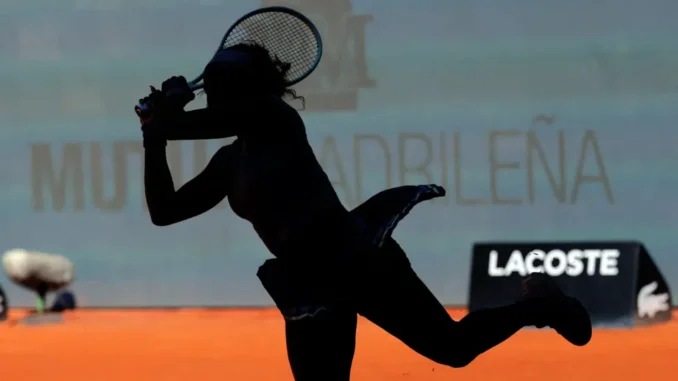
On an otherwise vibrant Monday at the 2025 Madrid Open, the Caja Magica was thrust into chaos as a massive national power outage swept through Spain and Portugal, halting play and leaving players, fans, and organizers grappling with an unprecedented disruption. The blackout, one of the most significant in recent European history, dimmed the lights on the prestigious ATP and WTA Tour 1,000 event, but not before world number four Coco Gauff and rising Russian star Mirra Andreeva secured their spots in the quarterfinals. Their reflections on the surreal experience painted a vivid picture of resilience, camaraderie, and the unexpected challenges of a tournament interrupted by forces beyond their control.
As the outage struck, Gauff had just clinched a commanding 6-4, 6-2 victory over Belinda Bencic, earning her a place in the quarterfinals. Her post-match interview at the Arantxa Sánchez Stadium was abruptly cut short when the microphone lost power, a moment that encapsulated the sudden plunge into darkness. Meanwhile, Andreeva, the 18-year-old prodigy, was at a critical juncture, serving at 15-40 to seal her 6-1, 6-4 win against Yuliia Starodubtseva. “It was 15-40 on my serve, and I was like, Oh, Mirra, just please, please do everything in your power to just take this game and finish this match,” Andreeva recounted, her determination shining through despite the looming uncertainty.
The power cut didn’t just disrupt matches; it transformed the tournament’s atmosphere into something almost cinematic. Players, accustomed to the intense focus of competition, found themselves navigating a darkened venue with phone flashlights, sharing moments of levity and connection. “Everyone is using the phones with flashlights,” Andreeva said, noting the unexpected camaraderie that emerged. “It’s also kind of fun because everyone is talking together.” Gauff echoed this sentiment, highlighting the rare opportunity to connect with peers like Frances Tiafoe, Diana Shnaider, Madison Keys, and Andreeva herself. “Most of the time we’re trying to prepare for our matches, everyone’s zoned in, and we all understand that,” Gauff said. “But this was different. I was talking to Frances, talking to Mirra, too, Diana, Maddy.”
The outage’s impact extended far beyond the courts. Across Madrid, traffic lights failed, trains ground to a halt, and the city’s metro system stalled, leaving thousands stranded. At the tournament, Brazilian doubles player Fernando Romboli was trapped in a lift for 30 minutes, a stark reminder of the blackout’s reach. Gauff’s journey back to her hotel turned into an ordeal, as she documented gridlocked traffic in an Instagram story. “Got out of the car after one hour 45 minutes’ slowly moving and just walked to the hotel,” she shared, her frustration tinged with a sense of adventure.
The blackout’s ripple effects were profound, with reports of at least five deaths in Spain linked to the crisis, including carbon monoxide poisoning from generator use and a fire sparked by a candle. By Monday night, power began to return to parts of Madrid, though the restoration was patchy, with streetlamps flickering and residents relying on torches. By Tuesday, nearly all of Spain’s electricity supply was restored, allowing the Madrid Open to resume play, albeit with a tightly packed schedule. Gauff and Andreeva’s highly anticipated quarterfinal clash was set for Wednesday, April 30, at 3 p.m. local time, promising a blockbuster showdown between two of tennis’s brightest young stars.
Reflecting on the experience, Gauff offered a philosophical take on the outage’s broader implications. “It’s just crazy how much we depend on electricity. It’s really insane and puts it in perspective,” she said at a press conference. “Also makes me think about the humans before electricity and how impressive that is.” Her words underscored the humbling reality of modern reliance on power, a sentiment shared by many as Spain and Portugal began investigating the outage’s mysterious cause, with a cyberattack still under consideration despite initial dismissals.
For Andreeva, the blackout was a test of focus under pressure, but she also found humor in the chaos. “I didn’t want to sleep in the gym,” she joked, relieved to return to normalcy. As the Madrid Open prepared to move forward, the resilience of players like Gauff and Andreeva stood out, their ability to adapt and connect in the face of adversity adding a memorable chapter to the tournament’s history. With their quarterfinal match looming, fans eagerly awaited a clash that promised to light up the courts—power or no power.
Leave a Reply